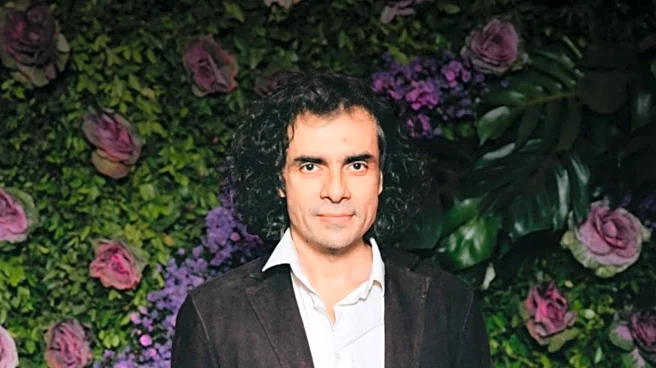What's Happening?
Dr. Peter Attia, a Stanford-trained physician, is pioneering a new approach to longevity medicine, focusing on extending the period of life spent in good health. He emphasizes the importance of physical
fitness, particularly cardiorespiratory fitness, muscle mass, and strength, as key indicators of overall health and longevity. Attia advocates for rigorous physical training, akin to athletic preparation, to combat the decline typically seen in the final decade of life. His methods include comprehensive physical evaluations and the use of diagnostic tools like VO2 max tests and DEXA scans. Attia's approach, termed 'Medicine 3.0,' aims to shift healthcare focus from treating diseases to preventing them, encouraging patients to take proactive steps in managing their health.
Why It's Important?
Dr. Attia's approach to longevity medicine represents a significant shift in healthcare, emphasizing prevention over treatment. This could lead to changes in how healthcare providers and patients approach aging, potentially reducing the prevalence of chronic diseases such as heart disease, stroke, cancer, and diabetes. By focusing on physical fitness and early detection, Attia's methods could improve quality of life and extend the healthy years of individuals, impacting public health policy and healthcare costs. His ideas challenge traditional medical practices and could influence future healthcare models, encouraging a more proactive and personalized approach to health management.
What's Next?
Dr. Attia plans to launch a digital health app next year, which will make his program more accessible to a broader audience. This app aims to provide guidance on physical fitness and health management without requiring direct physician involvement, potentially democratizing access to longevity medicine. As his methods gain popularity, there may be increased interest and investment in preventive healthcare and fitness programs. Healthcare providers and policymakers might consider integrating similar approaches into standard practices, potentially leading to a shift in healthcare priorities and resource allocation.
Beyond the Headlines
Dr. Attia's focus on longevity medicine raises ethical and cultural questions about the accessibility and affordability of such healthcare approaches. With his program costing six figures, it highlights disparities in healthcare access and the potential for longevity medicine to become a privilege for the wealthy. Additionally, his emphasis on physical fitness and proactive health management could influence cultural attitudes towards aging, encouraging a more active and health-conscious lifestyle among older adults. This shift could have long-term implications for societal views on aging and the value placed on healthspan over lifespan.










